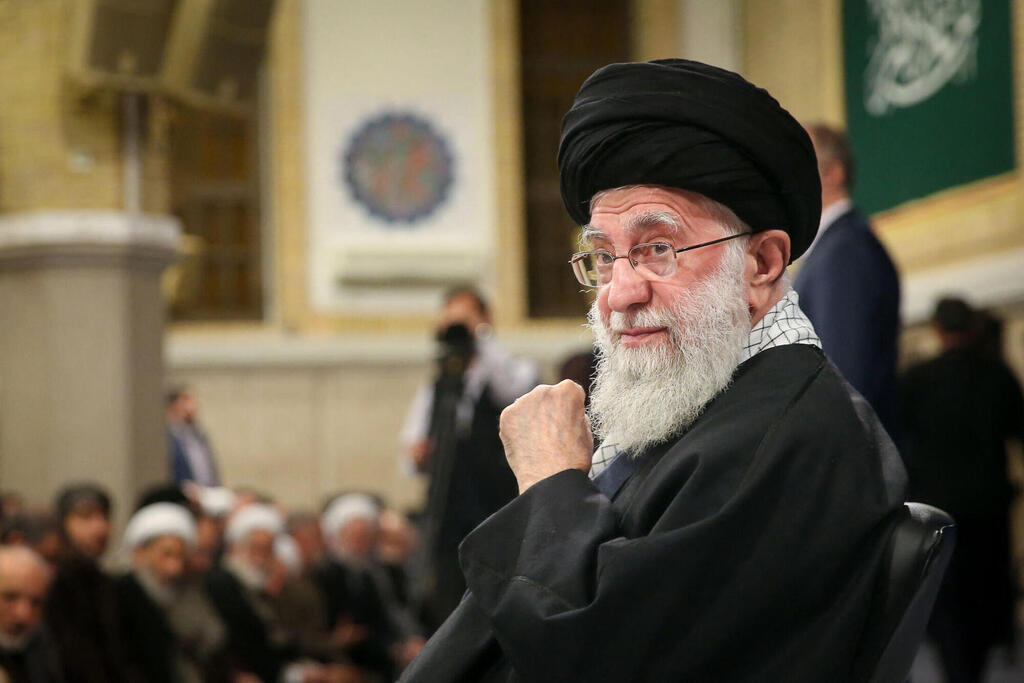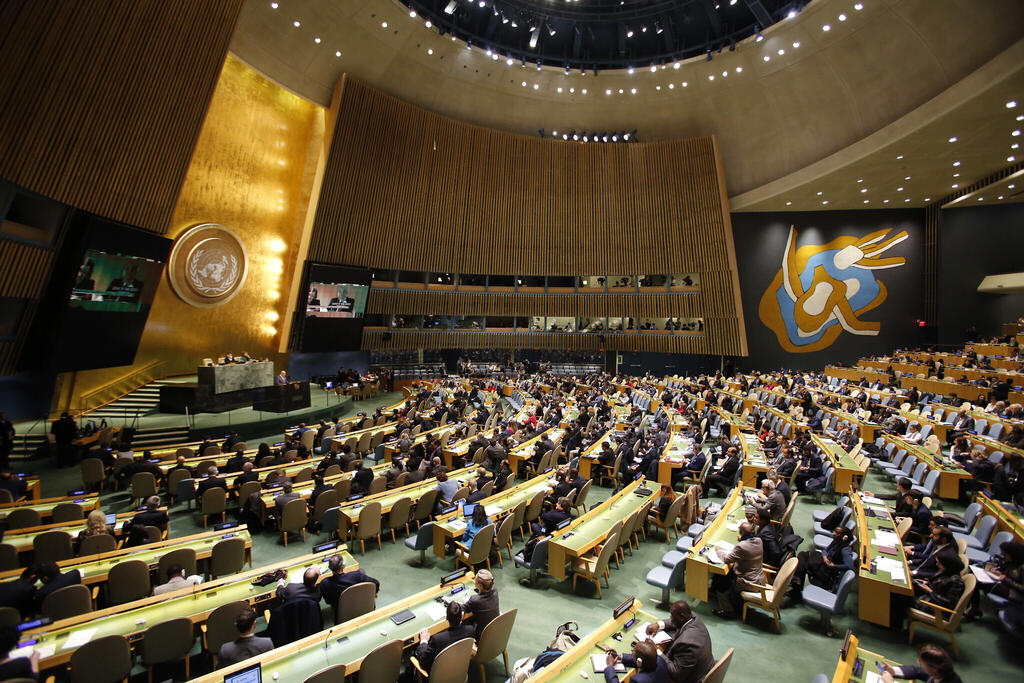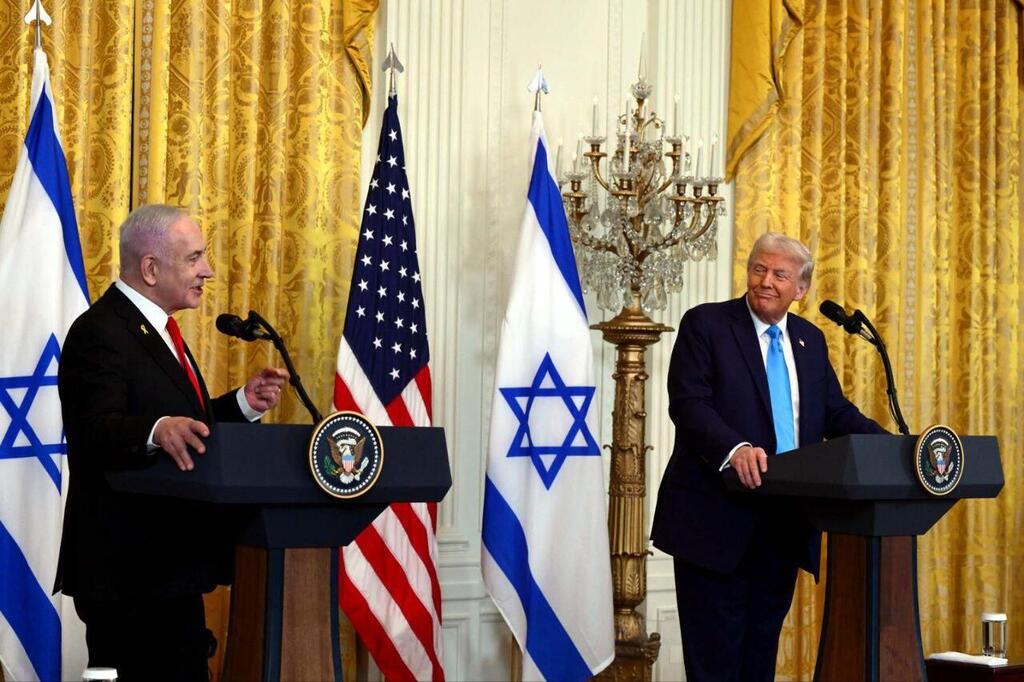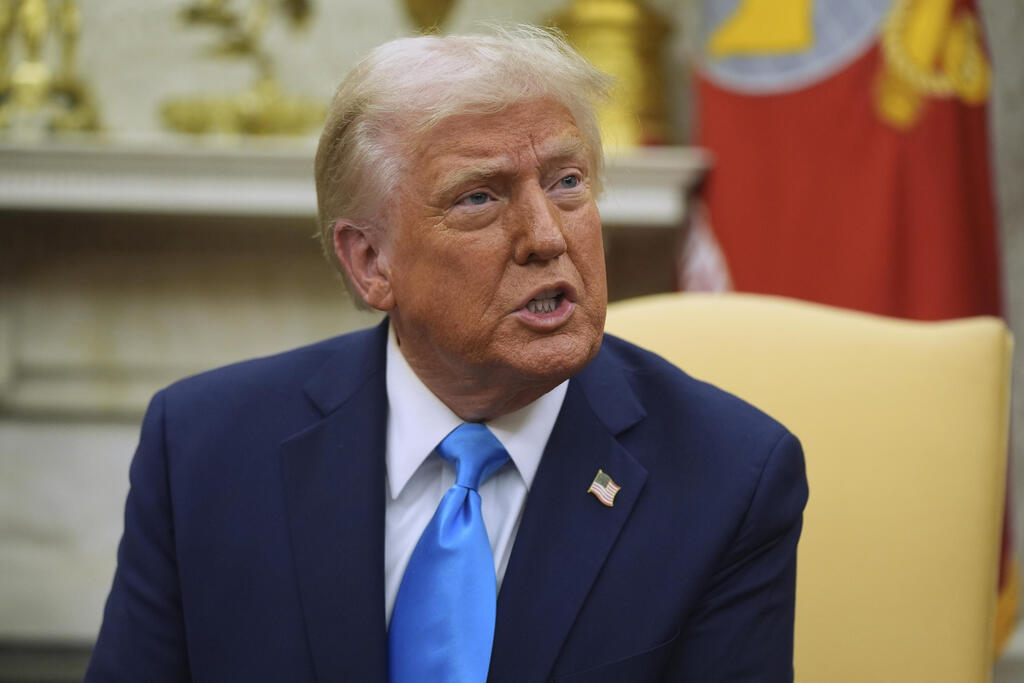Getting your Trinity Audio player ready...
Earlier this week, U.S. President Donald Trump and Israeli Prime Minister Benjamin Netanyahu stood side by side at the White House, addressing reporters in a highly anticipated press conference. Their speeches touched on security, diplomacy, and the future of U.S.-Israel relations—echoing a similar scene from 2017, during President Trump’s first term.
At first glance, the two press conferences, held eight years apart, might seem worlds away. The Middle East has undergone seismic shifts, most notably with the October 7 Hamas attack on Israel.
Yet despite these dramatic changes, striking similarities emerged between the speeches given then and now.
An analysis of both transcripts reveals that key themes—Israeli resilience, the need for peace with the Palestinians, and U.S. support for Israel—remained essentially unchanged. While some see this consistency as a sign of enduring commitment, others argue that it underscores a deeper problem: the status quo is stuck. Analysts warn that without a shift in strategy, which is what Trump is recommending, we may hear the same speeches in another eight years—offering the same promises and addressing the same conflicts but failing to break the cycle.
Israel has long been a bipartisan issue in the U.S., with strong support for the country from both Democrats and Republicans. President Trump took office in 2017, following President Barack Obama, whose relationship with Netanyahu has often been described as strained. In his speech that May, Trump emphasized the “unbreakable bond” between the U.S. and Israel, praising the Jewish state as a “symbol to the world of resilience in the face of oppression.”
Netanyahu, in turn, stressed the need to “dramatically upgrade our alliance in every field.” He also reminded the new president that while Israel has no better ally than America, “I want to assure you, the United States has no better ally than Israel.”
President Trump’s strong stance on Israel has been key in attracting Jewish support. “The more Jews in America care about Israel, the closer it brings them to Trump,” political media consultant Steve Rabinowitz told The Media Line.
Trump and Netanyahu press conference
(Video: Reuters)
Eight years after 2017, the same themes are being repeated once again.
This time, Trump came into office replacing President Joe Biden, whose administration has been accused of harming Israel’s war efforts by withholding weapons and ammunition and of prioritizing humanitarian aid to Gaza—even when it risks falling into Hamas’ hands—over ensuring the defeat of the terror group.
Following October 7, 2023, tensions flared between Israel and the U.S. In February 2025, for example, President Joe Biden told reporters that Israel’s actions in Gaza were “over the top,” signaling a rift.
On Tuesday, President Trump sought to reaffirm the relationship again, telling the world that “the bonds of friendship and affection” between the U.S. and Israel are “absolutely unbreakable.”
So, which other issues remain on the table—or have resurfaced—from 2017?
Iranian nuclear threat
President Trump first took office shortly after the Obama administration signed the Joint Comprehensive Plan of Action, known as “the Iran deal,” aimed at curbing Iran’s nuclear program.
Netanyahu vehemently opposed that deal, urging the U.S. not to sign it. When Trump entered the White House, he immediately reimposed sanctions on Iran, calling the agreement “one of the worst” he had ever seen in his 2017 speech.
For nearly four years, President Trump’s policies financially squeezed Iran. But when President Biden took office, he lifted many of those sanctions. Over four years, the Biden administration enriched Iran by more than $50 billion.
Get the Ynetnews app on your smartphone: Google Play: https://bit.ly/4eJ37pE | Apple App Store: https://bit.ly/3ZL7iNv
Now, President Trump has vowed to reverse course once again.
“I also took action to restore a maximum pressure policy on the Iranian regime, and we will once again enforce the most aggressive possible sanctions, drive Iranian oil exports to zero, and diminish the regime’s capacity to fund terror throughout the region and throughout the world,” Trump said.
With the situation now more volatile than ever, sanctions alone may not be enough.
Some experts warn that military action could become necessary. While President Trump has signaled that the U.S. is unlikely to take direct military action, his administration has signed agreements for weapons purchases that could give Israel the firepower to act if needed. If such an attack occurs, one thing is clear—it would only happen in full coordination with the United States.
United Nations vs. Israel
In December 2016, just weeks before Trump took office, the UN Security Council passed a resolution condemning Israeli settlements in the West Bank and calling for all Israeli settlement construction to stop. It also pushed for stricter labeling of products made in Israel versus those produced in settlements.
The Obama administration, in a parting move, chose not to veto the resolution—an act many saw as a final rebuke to Israel.
Six months later, President Trump made his stance clear.
“I reject unfair and one-sided actions against Israel at the United Nations—just treated Israel, in my opinion, very, very unfairly—or other international forums, as well as boycotts that target Israel,” he said.
Today, the situation is no different.
Now, after more than 15 anti-Israel resolutions passed at the UN in 2024, President Trump faces the same challenges. On Tuesday, he announced his response: “The United States withdrew from the antisemitic UN Human Rights Council and ended all support for the UN Relief and Works Agency, which funneled money to Hamas and was very disloyal to humanity.”
U.S. military aid to Israel
When Trump took office in 2017, he declared that U.S. security assistance to Israel was at “an all-time high.” This came after the U.S. finalized a $38 billion military aid package in September 2016—the largest of its kind under the Obama administration.
But after 16 months of war, Israel’s needs have only grown.
In August 2024, the U.S. State Department confirmed that an additional $3.5 billion had been sent to Israel for American-made weapons and military equipment. This announcement, however, was followed by delays and what many criticized as a “de facto arms embargo” on Israel.
Now, just days into his return to office, President Trump has taken action. He lifted the previous administration’s embargo on over $1 billion in military aid, signaling a renewed commitment to Israel’s defense.
West Bank annexation
The fate of settlements in the West Bank, also known as Judea and Samaria, has been a challenge for every U.S. administration since 1967. That year, Israel won the territory in the Six-Day War. Israel annexed East Jerusalem and imposed control over the rest of the West Bank without formally annexing the area. Since 1967, Israel has maintained a military presence and established civilian settlements in the West Bank while managing aspects of security and administration.
Under Obama, Israel agreed to a partial West Bank settlement freeze in 2009 and 2010, though construction continued to expand during his presidency.
In his official remarks in 2017 and 2025, President Trump avoided the topic of settlements. However, when asked by a reporter about the topic in 2017, he responded, “We’ll work something out. I would like to see a deal be made. I think a deal will be made. I know that every president would like to. Most of them have not started until late because they never thought it was possible. And it wasn’t possible because they didn’t do it.”
Normalization agreements with the United Arab Emirates and Bahrain in 2020 temporarily halted Israel’s annexation plans. As part of the agreements, known as the Abraham Accords, Israel agreed to delay annexation efforts, despite pressure from Trump’s ambassador to Israel, David Friedman.
Now, annexation may be back on the table.
Trump’s nominee for U.S. ambassador to Israel, former Arkansas Governor Mike Huckabee, has hinted at this possibility. While he acknowledged that he was not in charge of policy, he stated that the West Bank annexation was “of course” a possibility during Trump’s second term.
When pressed on Tuesday, Trump refused to confirm whether he supported a two-state solution, a one-state solution, or any other framework. Instead, he stated that his priority is to “give people a chance at life.”
He added that his administration has yet to take a position on annexation but promised an announcement within the next month.
Trump’s peace vision
When Trump first took office, he believed he could bring peace to the Middle East—and he still does.
In 2017, he declared, “The United States will encourage peace and, really, a great peace deal. We’ll be working on it very, very diligently. Very important to me also—something we want to do.” The Abraham Accords were signed three years later, normalizing ties between Israel, the UAE, and Bahrain. Morocco and Sudan later joined the agreement.
Now, peace with Saudi Arabia is within reach, and Trump is determined to make it happen. Saudi leaders have insisted that a pathway to a Palestinian state is a prerequisite for any deal. But analysts say there may be flexibility in how that “pathway” is defined.
Israel, for its part, has formally ruled out the establishment of a Palestinian state. Over the past year, the Knesset passed two laws reinforcing this stance. Still, there is speculation that Israel’s position could shift—depending on who governs a potential Palestinian state and how much involvement the U.S. and moderate Arab nations have in its establishment.
On Tuesday, Trump highlighted his record on Middle East diplomacy. “We achieved the most significant Middle East peace agreements in half a century,” he said. “But the Abraham Accords in particular, and I really believe that many countries will soon be joining this amazing peace and economic development transaction. It really is a big economic development transaction. I think we’re going to have a lot of people signing up very quickly.”
He added, “We will restore calm and stability to the region and expand prosperity, opportunity, and hope to our nations and for all people in the Middle East, including the Arab and Muslim nations.”
Former Jewish Telegraphic Agency Washington bureau chief Ron Kampeas told The Media Line that Trump has remained committed to his “grand vision” for the Middle East and is now “trying to get it back on track.” However, he pointed to a key difference between 2017 and 2025: the absence of the Palestinians from the conversation.
“In 2017, he still envisioned a Palestinian state,” Kampeas said. “Now it seems this is off the agenda completely, and he is even talking about encouraging Palestinians in Gaza to leave. He has dismantled any kind of Palestinian sovereignty.”
Despite this shift, those in Netanyahu’s camp see hope in Trump’s approach.
On Tuesday, the Israeli prime minister praised Trump’s leadership, saying, “Your willingness to puncture conventional thinking—thinking that has failed time and time again—your willingness to think outside the box with fresh ideas will help us achieve all these goals.”
Trump cannot run for another term after this one. By 2029, the results of his Middle East vision will be clear.
Will Netanyahu be proven right—or will history repeat itself?









